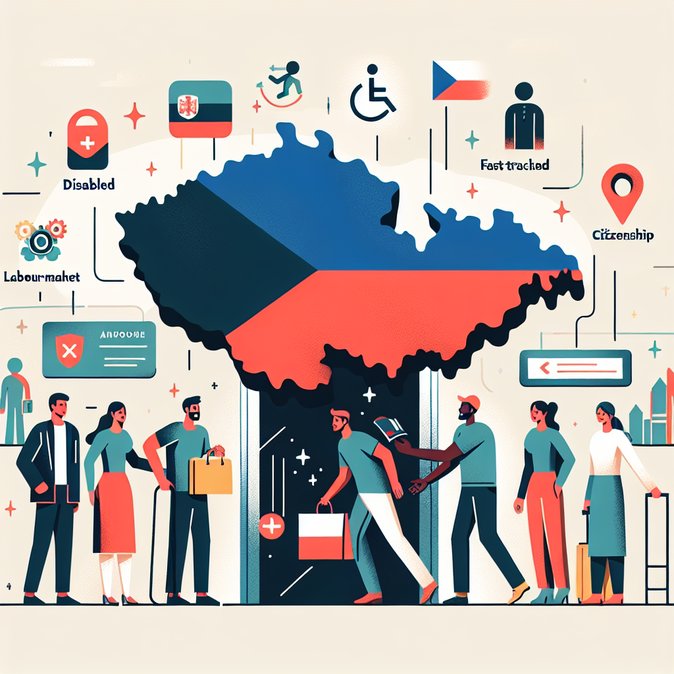
Czechia has moved to give displaced Ukrainians a longer planning horizon by launching a new five-year ‘special long-term residence’ permit, the European Commission’s Directorate-General for Migration and Home Affairs confirmed in a notice published on 21 November. The permit is open to holders of EU Temporary Protection who meet strict self-sufficiency criteria: no criminal record, secured housing, and untaxed income of at least CZK 440,000 per year plus CZK 110,000 for each dependent.
More than 82,000 people—around a quarter of all Ukrainians under protection in Czechia—have already signalled interest. Interior-ministry data show roughly 20 percent of applicants have been pre-approved, 80 percent of them economically active adults and 18 percent children. A Boston Consulting Group study earlier this year projected that up to 260,000 Ukrainians may wish to remain after the temporary-protection regime ends, underlining the magnitude of integration challenges ahead.
![Prague offers five-year ‘special long-term residence’ as Ukraine protection scheme evolves]()
Alongside the new status, authorities published a multilingual guide that explains how foreign-trained doctors can have their qualifications recognised and navigate licensing exams—part of a broader push to ease shortages in the Czech healthcare system. The government also increased monthly humanitarian grants for Ukrainians with disabilities to CZK 11,835 for minors and CZK 11,690 for adults, and introduced staffing and technology upgrades to cut citizenship-application backlogs that now average 15–18 months.
International Organization for Migration (IOM) funding will support housing-contact-point staff in all 14 Czech regions, dovetailing with a new Housing Support Act that offers rent guarantees and counselling to at-risk tenants. Public opinion remains divided: recent polling cited by the Commission shows concern about pressure on services, yet 58 percent of Czechs believe Ukrainians should be helped to integrate permanently if they work and pay taxes.
For employers the new residence pathway provides certainty: holders may work without labour-market tests, travel within Schengen for 90/180 days and—after five years—transition to EU long-term residence. Mobility managers should alert Ukrainian assignees that applications must be lodged before their temporary protection expires and that proof of income will be scrutinised against 2025 tax returns.
More than 82,000 people—around a quarter of all Ukrainians under protection in Czechia—have already signalled interest. Interior-ministry data show roughly 20 percent of applicants have been pre-approved, 80 percent of them economically active adults and 18 percent children. A Boston Consulting Group study earlier this year projected that up to 260,000 Ukrainians may wish to remain after the temporary-protection regime ends, underlining the magnitude of integration challenges ahead.

Alongside the new status, authorities published a multilingual guide that explains how foreign-trained doctors can have their qualifications recognised and navigate licensing exams—part of a broader push to ease shortages in the Czech healthcare system. The government also increased monthly humanitarian grants for Ukrainians with disabilities to CZK 11,835 for minors and CZK 11,690 for adults, and introduced staffing and technology upgrades to cut citizenship-application backlogs that now average 15–18 months.
International Organization for Migration (IOM) funding will support housing-contact-point staff in all 14 Czech regions, dovetailing with a new Housing Support Act that offers rent guarantees and counselling to at-risk tenants. Public opinion remains divided: recent polling cited by the Commission shows concern about pressure on services, yet 58 percent of Czechs believe Ukrainians should be helped to integrate permanently if they work and pay taxes.
For employers the new residence pathway provides certainty: holders may work without labour-market tests, travel within Schengen for 90/180 days and—after five years—transition to EU long-term residence. Mobility managers should alert Ukrainian assignees that applications must be lodged before their temporary protection expires and that proof of income will be scrutinised against 2025 tax returns.









